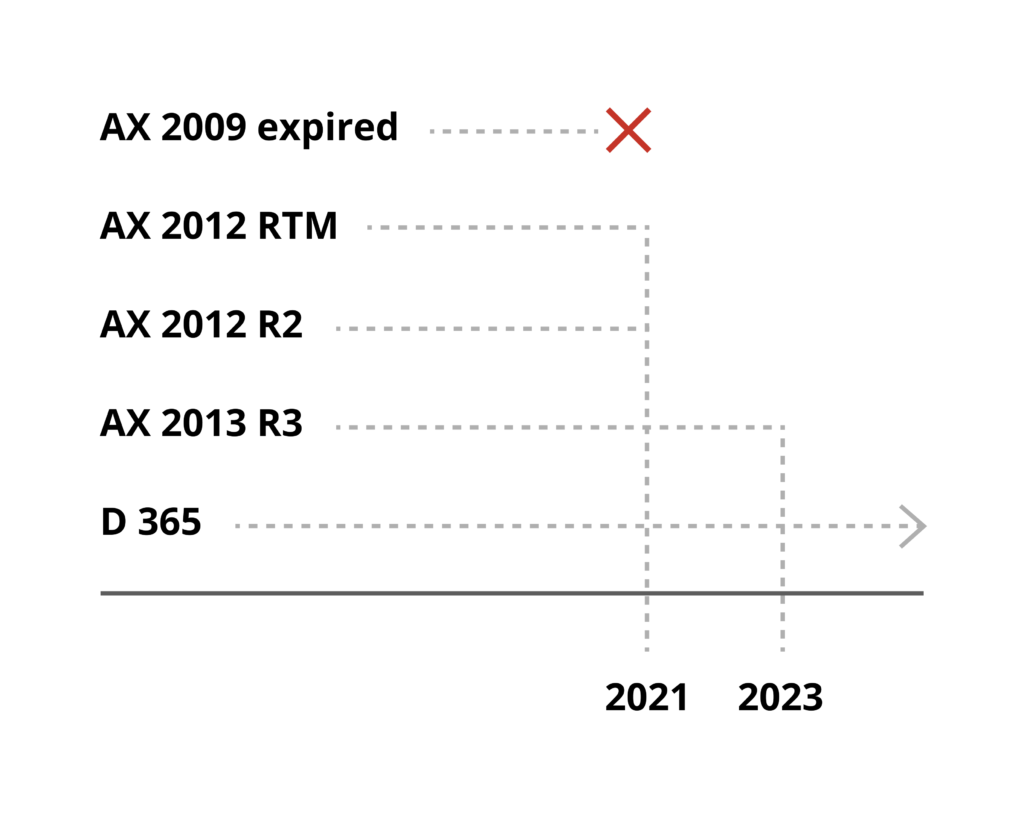If you are reading this article, it means you are probably either a current AX user or considering a switch to Dynamics 365, and the question you are asking yourself is if it is really worth migrating to the newest version.
Having launched Dynamics 365 for Operations in late 2016, Microsoft made it the primary ERP arm of the brand-new suite of apps.
It subsequently became Dynamics 365 for Finance and Operations in July 2017. The most recent update has split Dynamics 365 for Finance and Operations into Dynamics 365 Finance and Dynamics 365 Supply Chain Management.
For most of the AX2012 users, the decision to move to D365 Finance/SCM is not an easy one. Migration would mean time, effort and of course money.
To assist in your decision, we listed the top 5 reasons you may consider moving to the newest version.
Dynamics 365 Deployment & Data Management
The infrastructure on which they are both deployed is different. While Dynamics AX uses physical on-premise servers, Dynamics 365 is cloud-based and hosted on Azure servers.
Meaning the end-user doesn’t need to worry about data storage, servers, or performance equipment. Simply head to the browser, and you’re in. Furthermore, you may log in using your cell phone as the app can be accessed and run from almost any device, as long as you have an internet connection.
Microsoft has also improved data management by creating several ways for administrators and users to manipulate data to keep it clean, accurate and up-to-date. Some of them would be Auditing function (to track changes made to data) and “Cleaning” tools.
Interface
Dynamics 365 has also undergone a significant facelift, which is obviously aimed at improving user experience and encouraging collaboration with other users.
It offers a customizable, visually pleasing interface. For example, you can edit the homepage and color-scheme with D365 whereas AX does not provide you with the feature.
Bear in mind that D365 gives you an opportunity to use a new search, meaning that you can type whatever you are looking for, and you get all pages related to your search even though it’s a minor navigation upgrade – still worth noting.
Updates
Dynamics 365 Finance/SCM is the newest version of Dynamics AX, so its lifecycle is continuing with constant updates and upgrades that do not require significant time and monetary investments.
As we have mentioned above, it’s a cloud-based platform, so users can get new versions of software as soon as Microsoft releases them. On the other hand, AX 2012 user’s support by Microsoft will be eliminated by 2023, depending on the AX version used.

Improved business intelligence
Even though Dynamics AX provides you with business intelligence and reporting features (specialized tools for diverse and complex reporting of various functions), D365 has gone even further.
With access to AI-powered analytical services and the combination of Cortana Intelligence, Azure Machine Learning, and Power BI, D365 massively outstrips previous versions of AX in terms of reporting and business intelligence.
It’s significantly quicker, more powerful, and capable of producing custom data charts and reports to get insight on all your data. Therefore allowing your reporting to be KPI driven.
Integrations
Last but not least, another differentiating factor would be the ability to integrate seamlessly with other Microsoft cloud products such as Office 365, Power BI, and Dynamics CRM apps.
Additionally, you may have a LinkedIn integration, which allows you to import info from an employee’s LD page. In other words, HR will have a much easier time organizing company files and records.
Put all the things together…
Are the benefits heavy enough to go from AX 2012 to D365? Another way to phrase this: should you go to the cloud or not?
The right move for you and your business depends on many aspects. One of the major factors driving this decision would be whether you are comfortable with a Microsoft-Azure hosted platform in running your business.
As stated by Inflectia, you will have to do a switch. It’s just a matter of tome:
“You give up much control when you do this, which is required for D365 as opposed to AX. It reduces your support and maintenance costs, but it locks you into the Microsoft cloud. For customers with stringent data privacy requirements or security needs, it might not be possible to switch. Given Microsoft’s cloud-first vision and the fact that AX will stop receiving updates in 2023 – AX’s days are numbered. At some point, you either will have to switch to D365 or use another ERP system.”
Adam Sandman, Director



